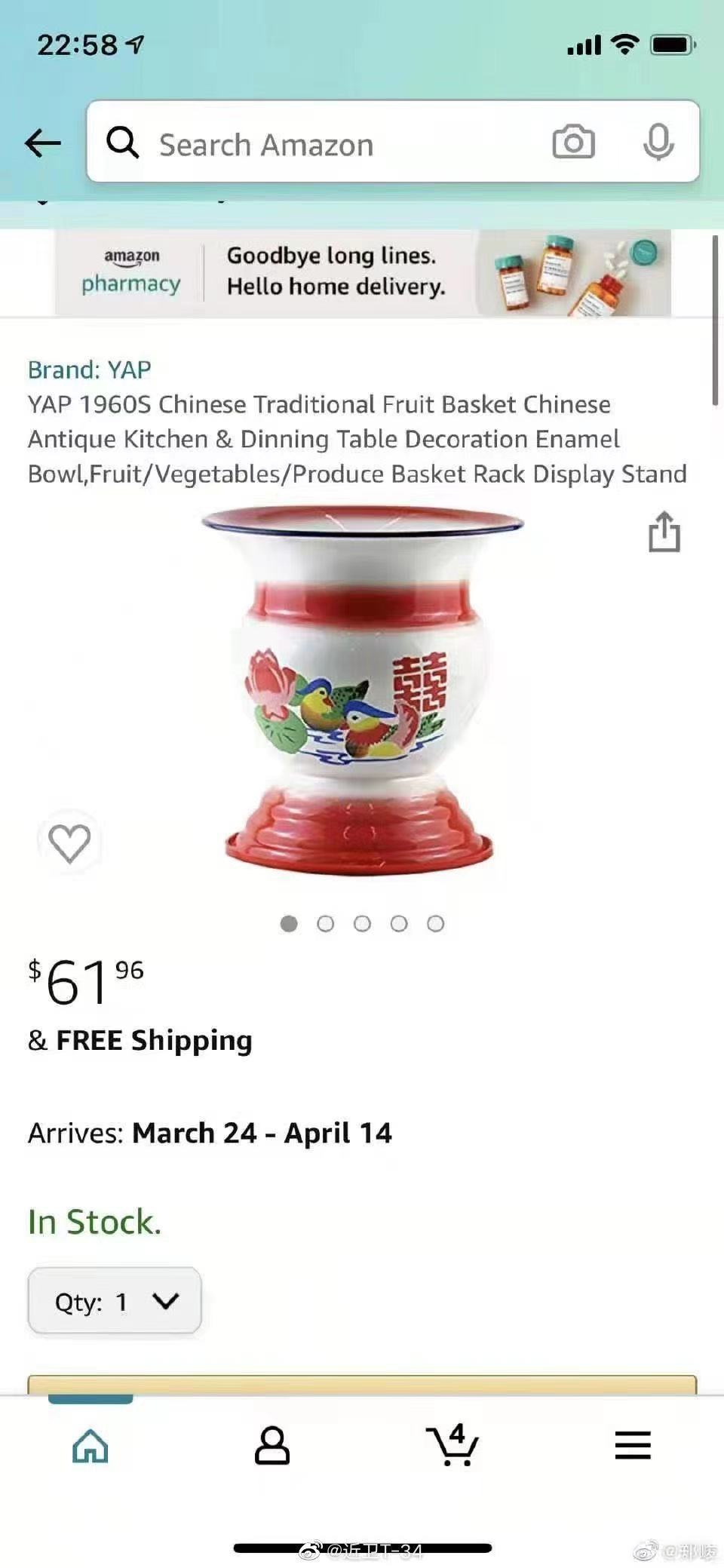Spittoon or fruit basket? Expensive ‘Chinese traditional antique’ sold on Amazon shocks Chinese netizens

Photo: Web
An "enamel fruit basket" sold on US e-commerce platform Amazon has attracted huge attention from Chinese netizens, not only because the product is tagged at a price almost 15 times its regular price in China, but also because the "Chinese traditional antique" sold for dining and fashion is actually used as a spittoon or a chamber pot in China.
The "fruit basket" went viral after a netizen posted a picture on social media that shows the $60 product on Amazon has a wide range of uses, including holding vegetables and fruits, as an ice bucket, decorating the kitchen and used as a gift for housewarming and weddings.
The post was widely circulated among Chinese netizens, who were amazed to see the value of a traditional spittoon that is also used as a chamber pot is so highly regarded on a US online marketplace.
The hashtag "the other ways a spittoon is used" received more than 50 million views of comments on Chinese social platform Sina Weibo as of press time.
"I hope no one from other countries ever buys this 'basket' and sends it as a gift to their Chinese friends because no Chinese people would feel happy if they see a delicately packed spittoon with fruits in it," commented one Weibo user.
"$60? I can't believe my childhood potty is more valuable than I am," another netizen joked.
Made in enamel and adorned with a pair of mandarin ducks, the product is sold for a much more modest 28 yuan ($4) on Chinese e-commerce platform Taobao, but there it is sold as a spittoon or portable chamber pot.
It was commonly seen in Chinese households in the 1980s and 1990s.
Some comments in the "Q&A" section of the Amazon product page also pointed out the "typical" use of the container, suggesting people not "buy it for food."
While the distinctive uses of the product seem funny to many netizens, some people see it as a cultural difference that should not be made into a big deal.
"It is actually interesting to see how things can be used differently in other cultures. As long as the buyers like it, it shouldn't matter it is 'originally' used for," said a Weibo user.
Global Times
